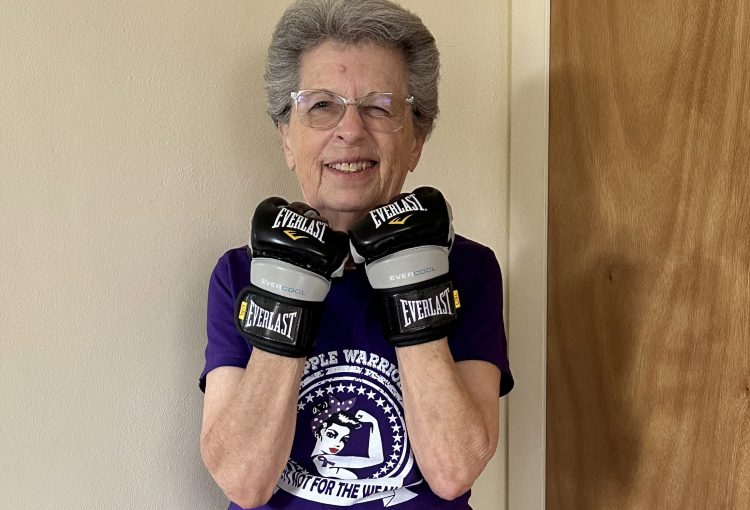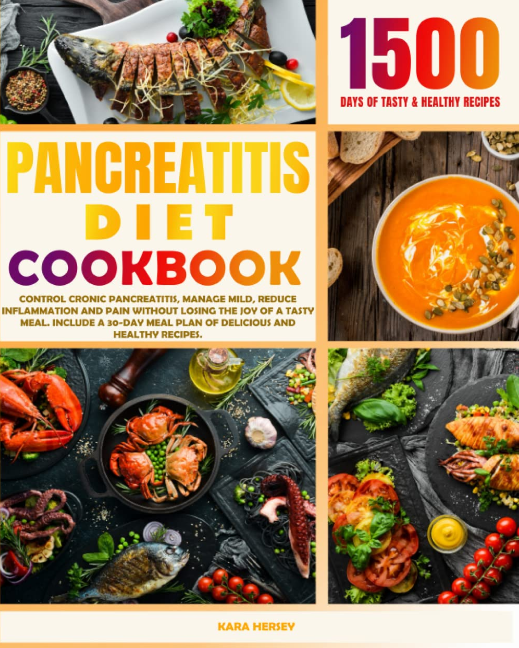PANCREATIC CANCER SURVIVOR BONNIE COHEN FOUND PURPOSE IN MENTORING OTHERS
Written By Julia Brabant
February 2024
Diagnosed: July 2021
Status: Continuing Her Fight
When discussing cancer, it’s common to hear the word “journey” used to describe the process. For Bonnie Cohen, the term didn’t quite capture the intensity of her own experience.
“It’s not a journey,” Bonnie said. “It’s a war, and I’m a warrior.”
In Bonnie’s case, that war began in the spring of 2019, when the active then-health care worker who spent much of her spare time at the gym began dealing with sudden abdominal issues. Initially, she thought she was having hunger pangs. She also began losing noticeable weight despite not making any changes to her diet.
A coworker commented that Bonnie didn’t “look right,” and while Bonnie didn’t notice anything different in the mirror, a supervisor agreed. A few days later, while taking a shower, Bonnie noticed her stomach area was yellow, and she felt itchy all over her body.
Bonnie visited her local urgent care, where the doctor looked at her eyes and recommended calling an ambulance right away. Bonnie opted to drive to the nearest emergency room, where doctors began tests.
Doctors said they saw some sort of blockage in the area of Bonnie’s pancreas. As a medical worker in the pathology lab, Bonnie knew what that probably meant. After working to get Bonnie’s bilirubin levels stabilized, doctors performed an endoscopy, which involves inserting a thin tube with a camera on it through the mouth and into the digestive tract to examine the pancreas and surrounding areas.
A biopsy was taken and evaluated by pathologists and oncologists who determined she had adenocarcinoma in the head of the pancreas. Adenocarcinoma, a type of cancer that grows in the glandular tissue, ran in the family – she’d lost a sister to adenocarcinoma of the liver and her mother had uterine adenocarcinoma.
Bonnie’s care team wanted to prep her for chemotherapy and installed a port through which to administer the medication. She began chemo using FOLFIRINOX in July 2019.
The first treatment seemed to go well initially. After going home and speaking with a friend over the phone, the friend expressed concerns, stating that Bonnie didn’t sound like herself. The friend called Bonnie’s neighbor, who checked on Bonnie in person and immediately agreed something was wrong and called for emergency assistance.
It turned out Bonnie had developed an infection in the port, prompting doctors to remove it and administer antibiotics. After recovering, she had to have another port installed before resuming her second round of chemo. The next few cycles went much more smoothly, with Bonnie experiencing some side effects, the worst being severe fatigue and numbness in her extremities, her toes and fingers.
After Bonnie’s eighth treatment, her doctors delivered good news. Her tumor had shrunk enough for them to schedule a Whipple surgery, a complex procedure that involves removing and reconstructing much of the gastrointestinal tract.
The surgery took between six and 10 hours. Bonnie awoke feeling groggy and medicated, yet acutely aware of the fact that it was now dark outside. She walked to the bathroom that same day under the nurse’s watchful eye. In the days that followed, her walking regimen increased.
After a week or two of recovery in the hospital, Bonnie returned home. Her condition improved each day, and while she was able to care for herself to some extent, she also had support from friends and neighbors.
“The thing about cancer – if you’re someone who wants to be independent, forget it,” she said. “You’re going to need something from somebody at some point.”
About two weeks after Bonnie’s Whipple, her surgeon cleared her to go back to the oncologist. Her oncologist said they needed to complete four more rounds of chemotherapy to finish the entire protocol. Devastated, Bonnie couldn’t help but feel overwhelmed, thinking there was no way her body could handle more chemotherapy. Despite this, she summoned her strength and moved forward with the final four rounds.
As she’d feared, chemo was a lot tougher this time around given that she’d yet to regain the strength she’d had before the Whipple. The first eight rounds took a day or two of recovery. The last four rounds were something else.
“It took a week or more to recover from each infusion,” she said. “I was on the verge of stopping but knew better. Chemos 11 and 12 were devastating. The last chemo was unbearably difficult, and it took every ounce of willpower I had to complete.”
While Bonnie was thrilled to finally put chemo behind her, she had some lifestyle adjustments to make in the days and months that followed. She had to start taking CREON, digestive enzymes, with food, and iron pills in addition to her existing medications, which compounded her stomach issues.
Bonnie also sought out ways to get through the emotional aspects that came with having cancer. Wellness, mindfulness, Tai Chi and stretching were lifesavers for her.
She also began partnering with local health organizations and advocacy groups as a cancer mentor, providing support and guidance to other people facing similar health hurdles. As a mentor, Bonnie asks many of her mentees similar questions.
“’Do you trust your health care team? Do you have insurance or financial concerns?’” she asks. “’Are the people in your life, family and friends, supportive?’”
While she’s there to answer these and other questions, Bonnie also shared insights she gained during her own pancreatic cancer treatment and recovery.
“If the people in your life aren’t supportive, walk away,” she said. “If they’re the ones to walk away, let them keep walking.”
Bonnie also encourages patients to question what their doctors tell them and get second opinions, especially if they feel dissatisfaction with the answers they’re getting.
“YOU control your cancer,” she said. “Your cancer doesn’t control you.”
Bonnie also helps her mentees to come to terms with other important life transitions she’s gone through herself, such as facing involuntary early retirement. Bonnie adjusted to life after cancer and evolved into a new and better person than she was before.
“I’m very grateful to be approaching five years of survivorship,” Bonnie said. “We all have that one activity that defines us. For me, it’s going back to training with my trainer and being able to get back to kickboxing. Doing this, I feel I’m back to being me, and I’ve come full-circle.”




